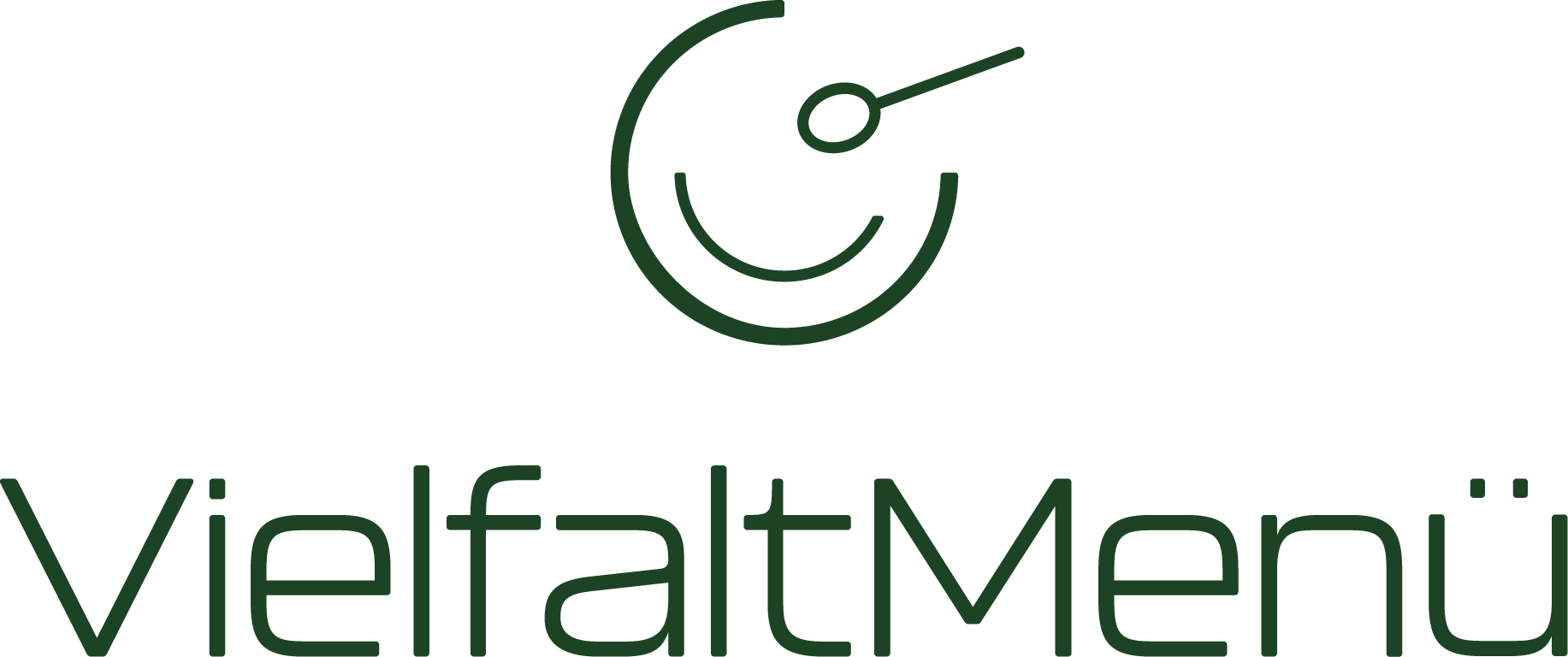
Welcome to
VielfaltMenü
Are you looking for more than healthy, sustainable and delicious food for your facility? Discover our wide range of products and be inspired by individual solutions.
Our catering offers for
Why VielfaltMenü
360-degree catering that inspires all round.
With our 360-degree concept for communal catering, we ensure that every guest receives the same high-quality and varied variety menu everywhere.
1. menu creation
Age-appropriate, DGE-compliant menus – balanced, varied, seasonal and individually tailored.
2. purchasing and delivery
Regional products, preferably in organic quality, for sustainable and resource-saving logistics.
3. logistics and storage
Freshly prepared meals from 30 regional kitchens every day, efficiently stored for less waste.
4. preparation
Freshly cooked on site or in regional kitchens and reliably delivered to your facility.
5. delivery
The food is transported in an environmentally friendly way, remains at the perfect temperature and arrives on time.
6. serving the food
Simple app ordering, clear information on special foods and optimized service based on your feedback.
7. post-processing and cleaning
Thorough cleaning of systems, efficient recycling and regular maintenance for maximum reliability.
8. billing
Transparent costs, flexible billing options and digital tools for maximum efficiency.
9. customer service
Competent advice, individual solutions and regular support for your satisfaction.
1. menu creation
Age-appropriate, DGE-compliant menus – balanced, varied, seasonal and individually tailored.
2. purchasing and delivery
Regional products, preferably in organic quality, for sustainable and resource-saving logistics.
3. logistics and storage
Freshly prepared meals from 30 regional kitchens every day, efficiently stored for less waste.
4. preparation
Freshly cooked on site or in regional kitchens and reliably delivered to your facility.
5. delivery
The food is transported in an environmentally friendly way, remains at the perfect temperature and arrives on time.
6. serving the food
Simple app ordering, clear information on special foods and optimized service based on your feedback.
7. post-processing and cleaning
Thorough cleaning of systems, efficient recycling and regular maintenance for maximum reliability.
8. billing
Transparent costs, flexible billing options and digital tools for maximum efficiency.
9. customer service
Competent advice, individual solutions and regular support for your satisfaction.
Our services: Experience diversity.
We offer individual solutions for daycare centers, schools, businesses, clinics and retirement homes.
Contact us – we will find the right solution for you. VielfaltMenü – we do it. Possible.
Trust in our standards – certified and sustainable.
We stand for trust, quality and responsibility – for people, the environment and a sustainable future.
What the people who trust us every day say
Flexible & delicious
Very friendly, I was allowed to reorder forgotten food in the morning. My children also like the food itself very much.

Mareike
Friendly employees
Always friendly staff. Help with every little request. Keep up the good work!

Jasmine
Exemplary school meals
My child is very happy with the school meals. The staff are friendly, the app is uncomplicated, the menu selection is large and balanced. As a mother, I am also very satisfied. Thank you and keep up the good work!

Fairy Tale
Tastes good
The food tastes good, the luxury is that there are 5 menus to choose from and I always find a great lunch. I like it too and I have very rarely eaten bad dishes.

Anonymous
Super service
Great service, the app works perfectly, if you can read, it’s very easy to use…very varied menu…if you forget to order, you can also order later directly at the food counter…keep it up. TOP

Ines
Great service
Great service, we were still able to order at 6.00 am. Always friendly and easy to reach compared to other service providers.

Christian Wolf
Flexible & delicious
Very friendly, I was allowed to reorder forgotten food in the morning. My children also like the food itself very much.

Mareike
Friendly employees
Always friendly staff. Help with every little request. Keep up the good work!

Jasmine
Exemplary school meals
My child is very happy with the school meals. The staff are friendly, the app is uncomplicated, the menu selection is large and balanced. As a mother, I am also very satisfied. Thank you and keep up the good work!

Fairy Tale
Tastes good
The food tastes good, the luxury is that there are 5 menus to choose from and I always find a great lunch.
I like it too and I have very rarely eaten bad dishes.

Anonymous
Super service
Great service, the app works perfectly, if you can read, it’s very easy to use…very varied menu…if you forget to order, you can also order later directly at the food counter…keep it up. TOP

Ines
Great service
Great service, we were still able to order at 6.00 am. Always friendly and easy to reach compared to other service providers.

Christian Wolf





